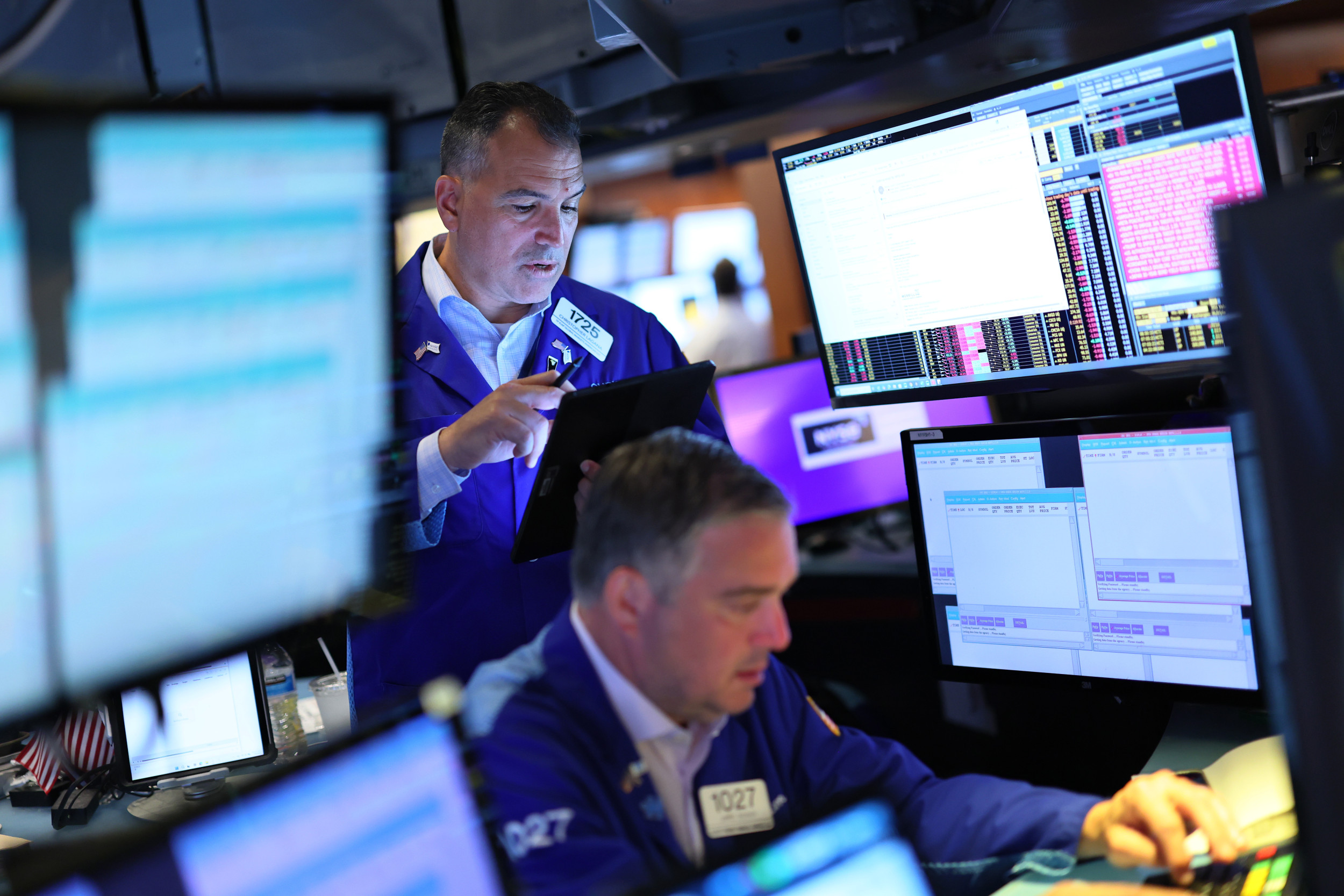
A new survey of hundreds of industry professionals finds that 84 percent of businesses believe that President Donald Trump‘s wide-ranging global tariffs “likely” to some degree will increase the risk of a global recession this year.
Newsweek reached out to the Office of the United States Trade Representative for comment.
Why It Matters
On April 2, Trump announced sweeping tariffs intended to counter what he described as continued exploitation of the United States in global trade, dubbing it “Liberation Day.” The administration’s objective was to mirror foreign trade barriers being imposed on U.S. exports and to exert pressure on trading partners ahead of looming negotiation deadlines.
This approach has contributed to volatility in global markets and caused uncertainty for American consumers, manufacturers and businesses.
What To Know
Creditsafe, a provider of business credit information that serves more than 500,000 users across 120,000 companies worldwide, surveyed over 200 U.S.-based finance, procurement and supply chain professionals to gauge their fears, perspectives and strategies to reduce tariffs’ impact on their businesses.
The survey, conducted in May 2025, included input from companies across the manufacturing, transportation, retail/wholesale, technology and automotive industries.
Michael M. Santiago/Getty Images
Aside from the 84 percent of respondents fearing a recession this calendar year, another 72 percent of U.S. businesses reported that they have imports currently on hold due to the Trump-levied tariffs.
Another 37 percent of the respondents plan to reduce the quantity of goods they import from China, while 28 percent plan to import fewer goods from Mexico and 28 percent are cutting back on imports from Canada.
Creditsafe said the findings align with data from the U.S. Commerce Department, which shows that imports coming from Canada and China fell to their lowest levels since 2021 and 2020, respectively.
They also note that imports increased significantly in December 2024 and January 2025 due to fears of the Trump administration’s trade policy once in control of the federal government.
“It’s certainly possible that one of the impacts of tariff hikes is that we’ll see an increase in supplier bankruptcies in 2025 and 2026,” Ragini Bhalla, head of brand and spokesperson for Creditsafe, told Newsweek on Thursday. “Not only did our study find that over half (53 percent) of businesses plan to look for alternative suppliers in other countries, but it also found that 51 percent of businesses have found themselves paying suppliers late due to the tariffs.
“When you take both of these factors, that’s going to put a serious squeeze on suppliers’ revenue and cash flow,” Bhalla said.
Bhalla is “strongly” urging urge businesses (customers) to do their best to pay suppliers on time, or relatively close to payment terms).
“Obviously, the benefits for suppliers will be tremendous: their cash flows will be healthy, their revenue growth won’t be negatively impacted, their operations will be stable and they can continue to fulfill customers’ orders in full and on time,” Bhalla added.
Trump’s ‘Heavy-Handed’ Trade Policy
Daniel Alpert, executive chairman of Westland Capital LLC, told Newsweek on Thursday that fundamentally it would be great to shift the balance of payments and trade and to establish more production in the U.S.
But the “heavy-handed way” Trump is going about it is likely to be more disruptive than it is to accomplish their perceived goals, he said, citing Trump’s 50 percent tariff against Brazil levied Wednesday due to support for Brazil’s former far-right president, Jair Bolsonaro, who is facing charges for an alleged coup attempt.
“The outrageously large tariffs being used and from a weaponization standpoint like what he did yesterday with Brazil made no sense at all,” Alpert said. “Brazil is a trade deficit country with us, so it’s clear that things are getting a little bit out of hand.
“I guess you could charitably say that there’s something to be gained by positioning oneself as a potential madman that no one can tell what you’re going do next, and so therefore they all scurry around to try to find a way to please you. That would probably describe a number of the countries that are out there trying to respond with constructive deals. But at the end of the day, the policy is disjointed.”
It’s been that way since the “Liberation Day” announcement that set the market on its end, Alpert added, with Trump essentially punting the ball forward “in order to not have to do something that would be pretty much suicidal for the country.”
Trump initially imposed a 10 percent flat tariff rate after significant financial market declines and postponed higher levies for 90 days to facilitate bilateral negotiations. Despite this pause, the administration maintained high tariffs on Chinese imports and later set an August 1, 2025, deadline for new tariffs to take effect if no deals were reached.
What People Are Saying
The letters President Donald Trump signed and posted on Truth Social said that the U.S. will “perhaps” consider adjusting the new tariff levels, “depending on our relationship with your country.”
Trump said Monday night at the White House that the August 1 deadline for a tariff deal was “firm, but not 100 percent firm. If they call up and they say would like to do something a different way, we’re going to be open to that.”
Josh Lipsky, chair of international economics at The Atlantic Council, as per the Associated Press, said of Trump’s three-week deadline extension: “I take it as a signal that he is serious about most of these tariffs and it’s not all a negotiating posture.”
What Happens Next
Despite the administration’s aim to finalize “90 deals in 90 days,” only two agreements were confirmed as the deadline approached.
